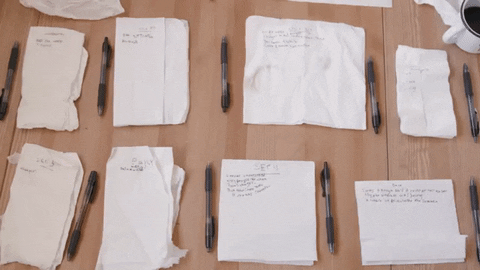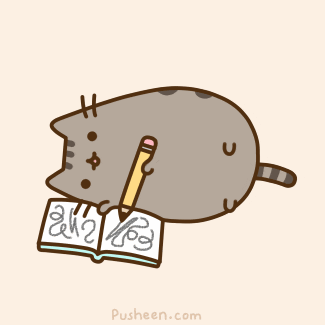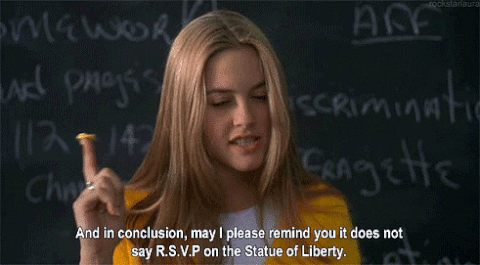We’ve all faced that feeling before: sitting down at your desk, all prepared to write the foreboding paper for class…and not a single word comes to mind. You can’t think of what to write. You barely even remember how to write. When this happens, everything looks so hopeless. Words don’t come easy, especially for such a daunting task. It just seems like so much. But don’t worry: getting started is the hardest part. Once you find something to write about, then nearly all of the paper’s issues will vanish into thin air. So, how do you even begin?
Start here to find the perfect path to your genius analysis.
10. Find a Consistent Theme

Typically, several themes weave themselves into a story, leaving you with several choices for a literary analysis. You could choose to study the narrative or a certain recurring subject amongst several characters. Ask yourself what stuck out to you in the story, what sort of repetition/themes you noticed in the story. It doesn’t necessarily need to center on a repeating subject, of course; if you notice two distinct subjects relate to each other, then that would also work for a literary analysis. The key remains consistency: so long as you can tie everything together, your literary analysis will be quite strong.
“On first reading, those ideas [in the book] spark something in the reader,” University of Iowa graduate Eliana Ramage said. “Then you get to choose to keep reading and never question it, or to do what leads to literary analysis: to try to follow those sparks as far as you can.”
Like a story’s theme, you want to bring your whole analysis together—essentially, making it clear and concise. A literary analysis doesn’t question if you read the text; it asks if you understood it. A strong and consistent theme gives a good enough answer.
9. Research, Research, Research

One of the most dreaded parts of the assignments, research proves absolutely crucial to a literary analysis. Sadly, you can’t just turn in a paper and hope that the reader will trust your judgment. You must back up your analysis with evidence. Luckily, it’s easier than it sounds; all the evidence is packed inside the book. If you pick a memorable subject, then finding scenes and quotes isn’t so hard. The book isn’t your only source, too—feel free to use scholarly websites, such as your school’s databases to help solidify your argument. When searching for a specific topic, put the key words in the search engine. Less is more, after all.
“I use the university database and access JSTOR mainly for literary research,” Sacramento State graduate student Kara Turner said. “I make sure to read the preface to every work and also the list of works cited for relevant research papers that I might have missed.”
Just remember—don’t let the research portion drag you down. You only need enough evidence to help construct what you want to say.
8. Draft an Outline

Outlines generally assist in staying organized and on top of things. Contrary to belief, they don’t need to possess immaculate detail and long, winding paragraphs. In fact, it’s okay for outlines to remain short and succinct. Mostly, they work as flow charts: a visual representation to see how your paper will thread together. It helps smoothen out transitions and tie together the paper as a whole.
“Once I have an outline, it’s easy to put my head down and crank the paper out,” University of Puget Sound junior Emily Hayes said. “Start your outline and research early—it will prevent so much stress and give you plenty of time to pivot if you’re not finding enough support, or you think of a different direction to go in.”
If you struggle to structure a paper, then working out an outline sounds like a great idea to get started. This way, you’ll work out most of the problems before you even start the actual paper. Then when the time comes, you’ll scribble out that paper with confidence.
7. Shape Your Thesis

Thesis statements: one of the most challenging pieces in the paper. Unfortunately, they’re also one of the most crucial parts of a literary analysis. You cannot write any kind of paper without a thesis statement, after all. Yet it poses a challenge: how do you condense your entire analysis in one simple sentence?
A thesis statement structures the main idea of your paper, the whole reason why you wrote this paper. Find the focal point of your paper, and explain it in simple terms. Do bear in mind that a quick recitation of facts doesn’t suffice for a thesis statement, though. A thesis statement means to persuade the reader of your thoughts and ideas. In all essentials, it’s a way to draw your reader in. Everything else leans on it for support, after all. So ask yourself this question: what, exactly, do you aim to say? Once you find that answer, you also found your thesis statement.
6. Consider Your Argument

In every paper, you may find a counterargument, a pushback against your main idea. Though this initially appears as a setback, counterarguments represent the opposite of that. Counterarguments mean that you found something interesting in the text, that you continue to build a strong and concise idea. It also requires you to think of solutions around these counterarguments. So consider what the opposing side would say and find a way to defend your weaknesses. Again, literary analyses mean to explain and persuade the reader of your position. Should they come up with a counterargument, you need information to sway them fully to your side. It all draws back to your main idea, after all. Remember: since you came up with this idea, you know it better than anyone else. That means you know your idea’s strengths and weaknesses. By addressing both of these in your paper, you’ll convince your reader of your clearly thought-out idea.
5. Smoothen Your Transitions

While consistent themes and outlines help, you still must check that your paragraphs seamlessly flow together. After all, you don’t want to look back on your paper and realize you wrote several paragraphs of disconnected points. Make sure that your paragraphs lead into each other, as well as conclude effortlessly before the next one begins. While this sounds complicated, a handful of words will suffice for a clean transition. For example, you could start a following paragraph as “As stated above,” or, “To continue on this idea.” Transitions act as a bridge between paragraphs.
Make sure that your arguments and explanations connect together, too. While it may look hard to place a counterargument in a paper, it’ll work so long as it fits in the information surrounding it. Keep similar principles and ideas together—it’ll make your paper look organized and comprehensive.
4. Find a Peer Reviewer

Once you finish your paper, you probably won’t want to read it over again. In fact, you’ll likely just want to turn in the finished product and consider it done. But despite your natural instinct, do your best not to do so: if you turn it in without another look, you might miss some clumsy spelling mistakes, or miss an opportunity to strengthen the weak points in your paper. It’s better to find an outside point of view, as peer readers tend to catch little details that you, the writer, might not see.
“Talking the idea out with others is usually beneficial,” Loyola Marymount University junior Allen Lam said. “If you can’t explain yourself clearly to a professor or fellow student, how can you be sure you’ll be reasonable and concise when writing?”
In addition, peer readers offer insight that you didn’t consider, thus strengthening your paper even more. Once you finish your paper, ask your classmates to read it over—they will surely provide a helpful outside perspective. If your professor agrees to review your draft before handing it in, give them a copy too. Your professor hands out the grades anyways, so getting their advice would greatly benefit your paper.
3. Get to the Point

When thinking of a literary analysis, you probably imagine your paper as several pages long. Most teachers probably provide an ideal page limit, too, which only enhances that image. But you don’t want your paper to possess long-winded fluff that leads to nowhere; that’ll only confuse your reader and the main point of your paper. Length, at the end of the day, doesn’t matter. The content matters the most.
“A good understanding of a text displays the process of a reader wholly engaged with it, alert to how it is made, attentive to nuance, and open enough to allow it to be what it is, without trying to wrestle it into some other meaning,” Loyola Marymount University professor Sara Maclay said. “[It’s] also open enough to understand the text as something to be experienced, primarily, as in other art forms.”
So if your paper looks rather short, don’t stress about the length. As long as you write your idea in an easily understood way, people won’t notice or comment your paper’s length.
2. End With a Strong Conclusion

Conclusions tend to act as the final barrier between you and the finished product. Incidentally, they also act as one of the hardest points of the paper. After all, you’ve already written the whole idea; the conclusion remains as one last restatement of everything. Again, remember that you’re the expert on this literary analysis. You’ve already explained everything you wanted to say, so a conclusion acts as a simple wrap-up. End it confidently, for now the reader knows your main idea as well. If it helps, think of conclusions as rewritten introductions: they’re both simple and succinct, condensing the whole paper into a handful of sentences. Block out the rest of the paper and take a look at how you wrote your introduction. Afterwards, rewrite the beginning—as it’s only a few sentences, it’s a lot easier than trying to reword the whole paper. When finished, you essentially completed your conclusion. Easy, right?
1. Write What You Want to Write

Literary analyses leave room for a lot of free reign—most of it is your choice and your argument. You construct this paper, but if you pick a topic that holds no interest to you, then the paper will feel like a drag. Don’t choose a subject that bores you to tears, or a topic that you hate but assume others will enjoy. Literary analyses must capture your attention, too. If you find a subject that genuinely interests you, then it’ll feel less like work and more like a fun project.
“I know that I’ll be spending a chunk of time with the information,” Loyola Marymount University junior Emily Ordonez said. “So I want to make sure I’m at least somewhat invested in it.”
Remember: write for yourself. The audience also includes you. Like all writing, you must ask yourself this crucial question: what do I want to write about? Once the answer comes to you, so will the rest of your literary analysis.



















